Student identity was formed in part by the choices made in curricular offerings, but also by how that education shaped their shared interests and knowledge. The Classics became deeply ingrained in student culture and served as the basis for insider jokes and references. Participation in student culture required mastery of a Classical Curriculum, which was possible for only a small minority of women in nineteenth-century America.
From the early days of Bryn Mawr, students performed songs, which were collected in books. The 1889 class song was an original Latin composition, and the Pallas Athena (still sung at Lantern Night) appears in 1889 song books. In 1903, more songs referencing Greek and Latin were added, including one that implies that knowledge of Ancient Greek is proof that a woman was “clad in Taylor’s new suit,” which, at this point, referred not to the founder, Joseph Taylor, but to the building that commemorated him, Taylor Hall, and all that its architecture and decoration encoded.
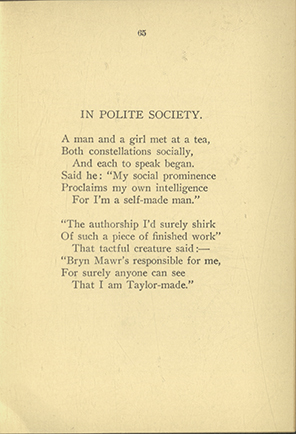
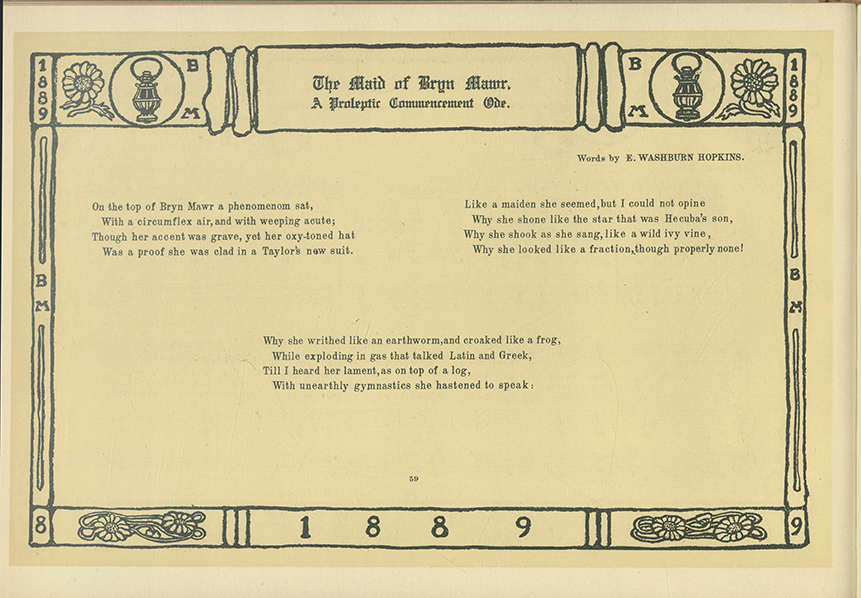
01837
This song refers to acute, circumflex, and grave accents, which are used in both Ancient Greek and French. The student’s “oxy-toned hat” is a reference to oxytone, which refers to an Ancient Greek word that is accented on the final syllable. These obscure references to Greek reveal how central it was to student life.
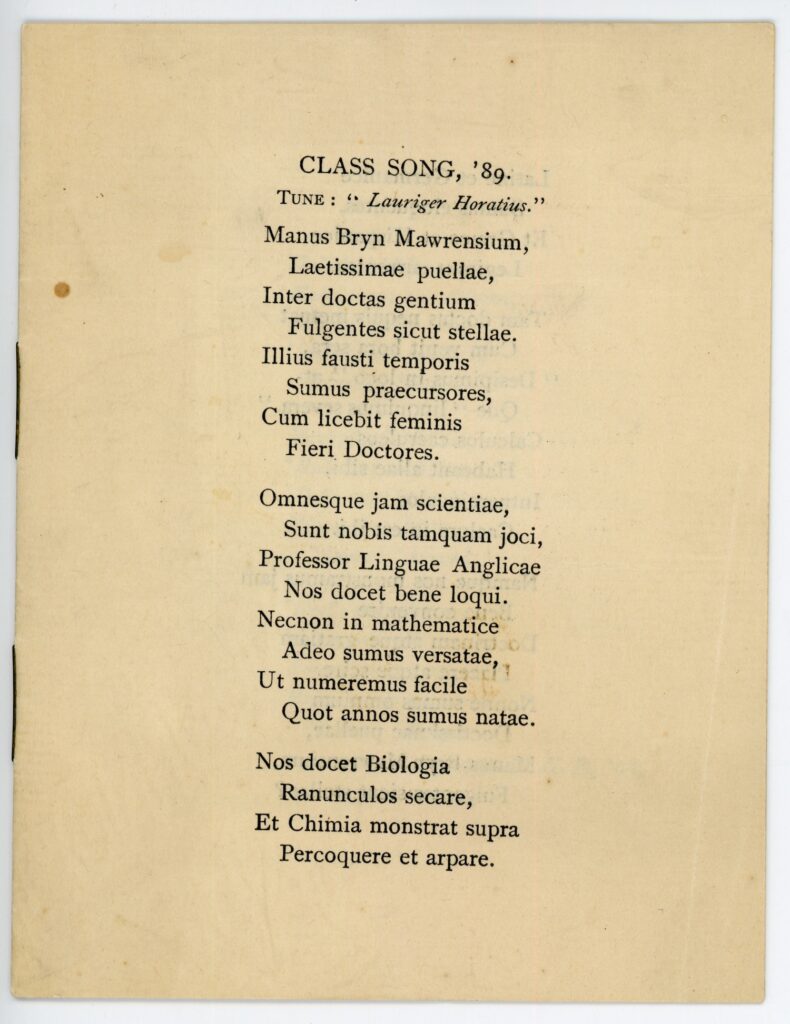
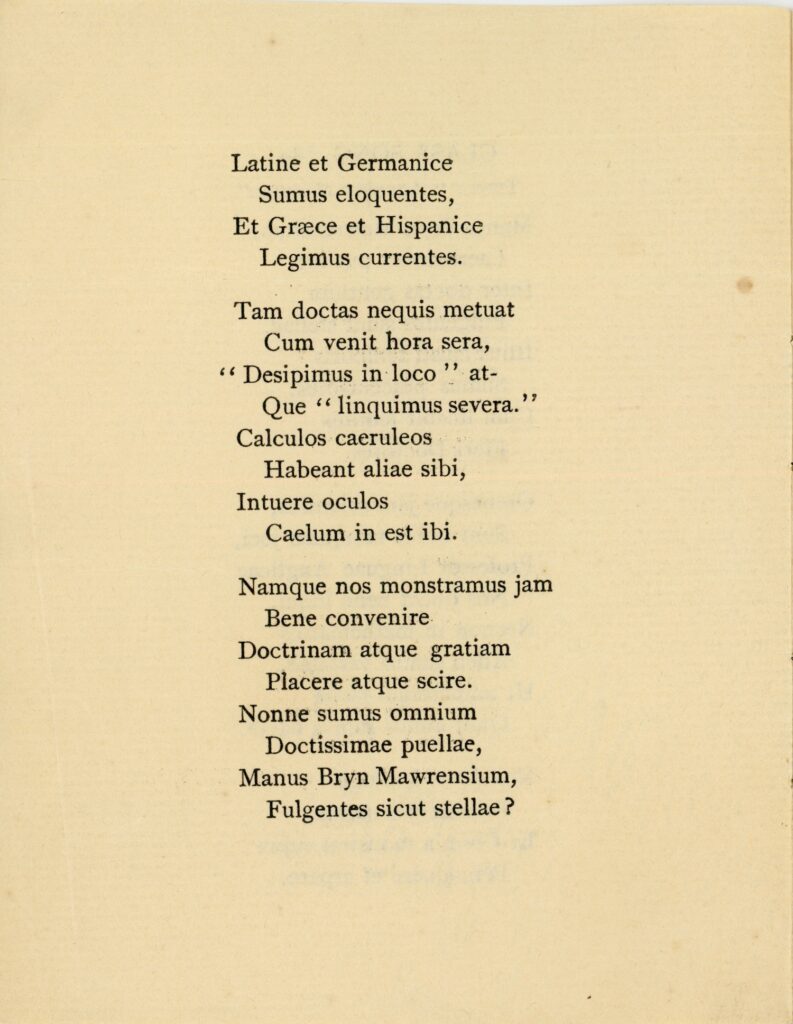
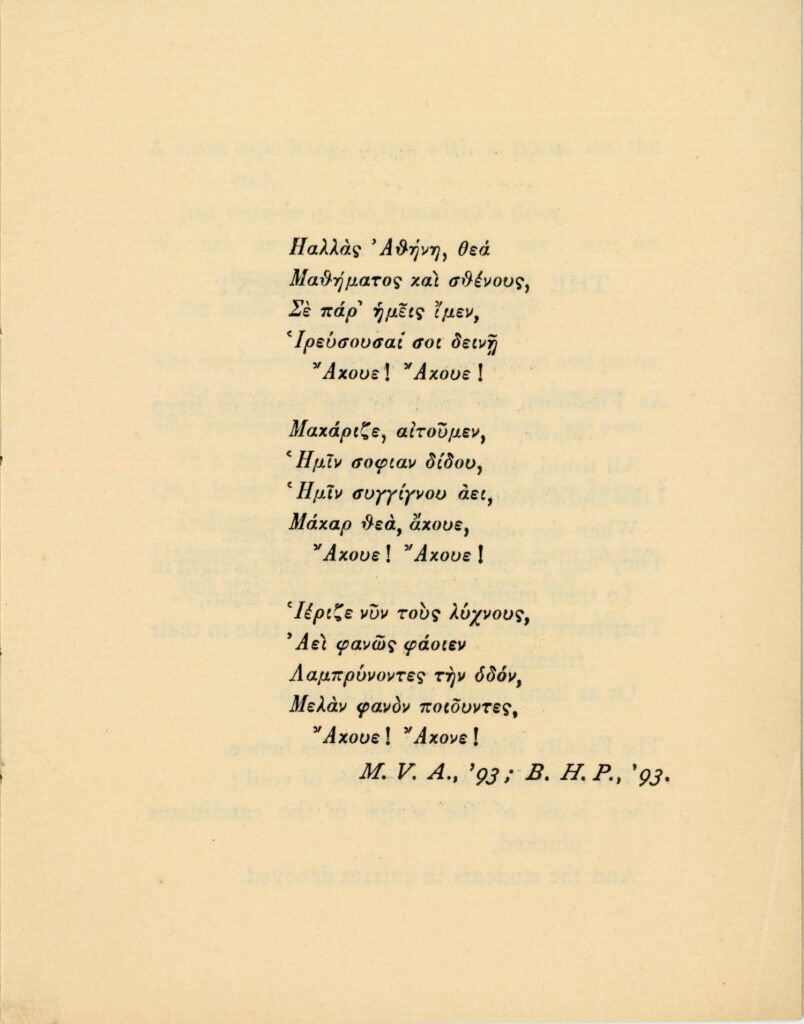
What does it mean that student life was so deeply tied to identities grounded in social exclusion, elitism, and racial superiority? How do we still grapple with this legacy today?
